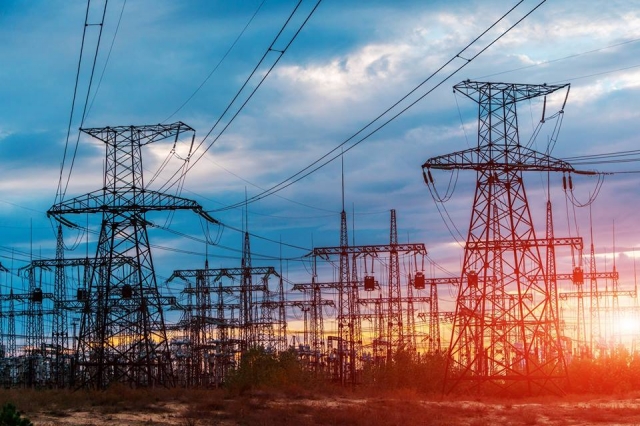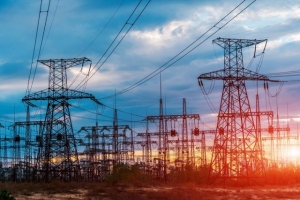Development of HPPs - Most Efficient Way to Replace Electricity Imports
Energy independence is of utmost importance for Georgia in terms of both its economic and political security. It is impossible to develop and strengthen the country without a strong energy system.
The immense technical progress has led to higher demand for electricity all over the world and Georgia is no exception: the demand for electricity in the country has been increasingly growing; we already face an issue with electricity shortage and exploitation of fresh power capacities while 80% our hydro resources remain unused.
Experts think the best solution is to build new hydropower plants that exploit these environmentally clean and cheap hydro resources. Nenskra hydropower plant that is currently under construction in Svaneti region is a clear example of this trend.
Main reasons that lead to electricity shortage
Electric power consumption in Georgia is characterized with seasonality: the consumption rate reaches its peak in winter which indicates that power in this period is largely consumed for household and domestic use.
The demand is met with hydropower plant and thermal power plant-generated electricity and imported energy. The ratio of electricity volumes generated by hydropower and thermal power plants is 80/20.
Consequently, a key resource for Georgia to generate electricity is water. However, water flow in rivers of Georgia is season-based as well: the rivers are water-abundant in summer while the water level sharply declines in winter.
Therefore, the level of minimum electricity generated by hydropower plants is the same as the maximum electricity consumption level and vice versa.
This particularly explains the reason for the electricity shortage.
How to deal with the electricity shortage
How the demand for electricity will change is not difficult to predict: the consumption rate will increasingly grow as economy develops.
The increased demand can be addressed with imported electricity and development of local sources of energy generation.
Electricity import and its shortcomings
The analysis of recent years illustrates that the electricity import is characterized with a growth trend while the electricity import shows a reduction tendency. In particular, the import rate grew for the period of 2010-2017 by 575% while the export was reduced by 55%.
The largest energy importers are Russia and Azerbaijan. Relatively less electricity is imported from Armenia.
Based on the analysis in question it can be noted that Georgia’s energy dependence on the neighbor countries has been alarmingly increased which puts us in a difficult situation in terms of energy security: supply of reliable energy to our country depends on their good will as well.
In this regard, we already have a hard experience that dates back to the winter of 2006 when Russia stopped the supply of natural gas which put our country in poor condition.
Apart from this, electricity import means foreign currency outflows, unpredictable and permanently growing prices. To make matters worse, given the electricity consumption growth and delay in construction of new facilities for power generation in the country, it is highly probable that we might experience some technical issues with importing grown volumes of energy.
In view of the above, importing electricity is considered to be the “worst” way to address the increased demand.
Alternate energy sources
Georgia’s power system can’t be based only on the alternate sources (wind and solar energy).
The electricity shortage can’t be addressed with this type of energy for a range of technical reasons.
Apart from this, due to the fluctuations that are characteristic for the alternate energy sources, the system won’t be able to operate on a sustainable and reliable basis.
Thermal power plants and their shortcomings
Increasing the capacities of thermal power plants also means reliance on import since Georgia imports raw materials needed for thermal power plants.
Consequently, as the rate of thermal power plants grows, the energy reliance on other countries grows as well.
Hydropower plants and their advantages
Through construction of hydropower plants, however, we can rather reduce the degree of energy reliance to the lowest. Therefore, by development of the potential of hydropower plants, we will ensure the growth of energy security of our country.
In addition, the only way to balance the electricity consumption-and-supply seasonality in Georgia is exploitation of water reservoir-based hydropower plants such as Nenskra Hydro - the one with 280 MW of installed capacity that is currently under construction in Svaneti: it will be capable of keeping water in its reservoir and using it for electricity shortage period, that lasts largely during autumn and winter.
Apart from this, by constructing hydropower plants, Georgia can offer both local and international markets renewable hydroelectric power that is substantially cheaper and environmentally cleaner than other traditional energy resources.
Therefore, the best solution to cope with the growing energy shortage is construction of new facilities - hydropower plants that are operated on the basis of low-cost and environmentally clean hydro resources.
Op-Ed by Bachana Pipia











